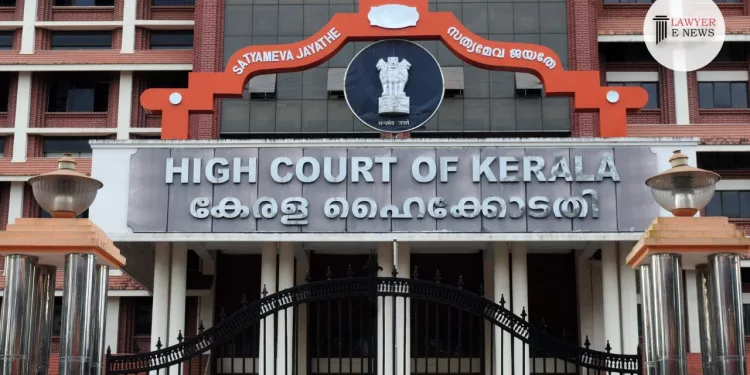Any Appointment to a Public Office in Violation of Statutory Regulations Can Be Considered in a Writ of Quo Warranto: Kerala High Court

In a significant judgment, the Kerala High Court, presided over by Justice Mohammed Nias C.P., addressed the intricacies surrounding the appointments of Vice Chancellors to the University of Calicut and Sree Sankaracharya University of Sanskrit. The core legal issue involved the alleged violation of UGC Regulations 2018.
Legal Point of the Judgement:
The judgment focused on the maintainability of writ petitions filed under quo warranto, challenging the appointments of Vice Chancellors on the grounds of non-compliance with UGC Regulations 2018. The Court noted, “Any appointment to a public office made even in contravention of the statutory regulations can be considered in a writ of quo warranto.”
Facts and Issues Arising:
The petitioners, Dr. T. Muhammedali and Prof. Dr. N. Prasantha Kumar, challenged the appointments of Dr. M.K. Jayaraj and Dr. M.V. Narayanan as Vice Chancellors, alleging non-compliance with the UGC Regulations 2018. The Chancellor, after issuing show cause notices, declared these appointments void ab initio. However, Dr. Jayaraj (Vice Chancellor, Calicut University) obtained an interim stay against this decision, whereas Dr. Narayanan (Vice Chancellor, Sree Sankaracharya University) did not, rendering his petition infructuous.
Court’s Detailed Assessment:
Maintainability of Writ Petition: The Court upheld the maintainability of the writ petition for quo warranto, citing the Supreme Court judgment in Rajesh Awasthi v. Nand Lal Jaiswal [(2013) 1 SCC 501].
Consideration of Quo Warranto: Despite affirming the maintainability, the Court decided not to consider the writ of quo warranto in light of the subsequent decisions made by the Chancellor.
Public Interest Litigation (PIL): The issue of whether the petition should be treated as a PIL and the applicability of High Court Rule 146A were left open, with the Court terming these as academic in nature.
Decision of Judgement:
Ultimately, the Court closed both writ petitions, WP(C) No. 335 of 2023 and WP(C) No. 703 of 2023, given the subsequent developments and the Chancellor’s decision.
Date of Decision: April 5, 2024.
Dr. T. Muhammedali & Prof. Dr. N. Prasantha Kumar vs Dr. M.K. Jayaraj, Dr. M.V. Narayanan, et al.






